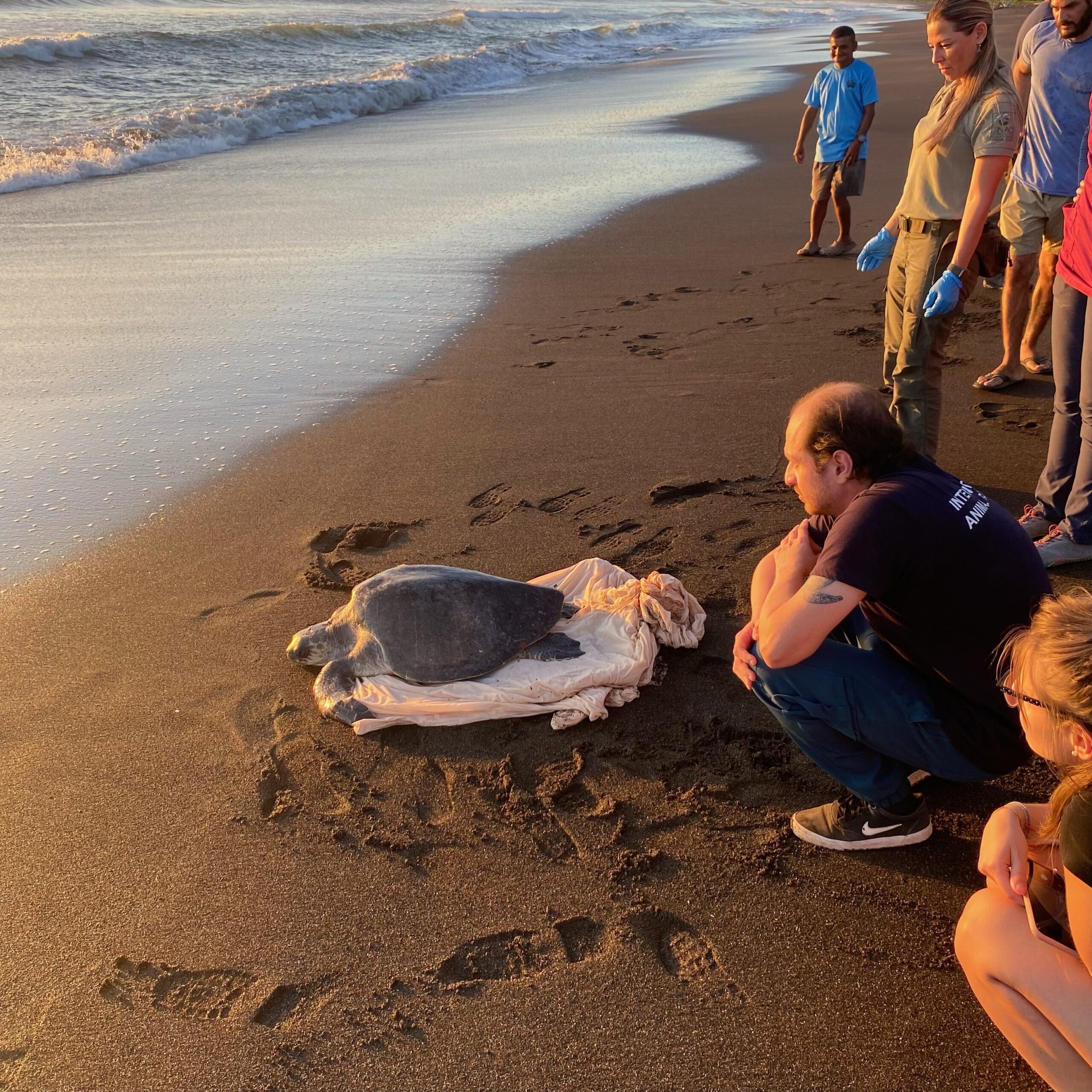The simple steps towards climate action everyone can take
Becoming more environmentally aware, and making more ecologically-sound choices, doesn’t have to involve huge amounts of effort. From sustainability professionals to everyday people, here are some easy decisions to help us all sleep better at night.

At the heart of our favourite British conversation topic lies a deeper concern — the weather. We’ve increasingly complained about it lately, but it’s not just idle chatter. Navigating the impact of climate change means becoming conscious contributors to this rhetoric.
The impact of climate change on the natural world is becoming more and more apparent, yet, conversely, nature also has a vital role to play in mitigating the crisis. The threat of biodiversity loss and extreme, adverse and unpredictable weather on human wellbeing is clear, and this is the focus of International Animal Rescue’s holistic conservation programme, IARconserves. Implementing tangible, enduring and sustainable solutions to restore and protect nature. But we need your help.
We ask everyone to move beyond casual weather discussions and embrace a broader understanding of our challenges. Climate change is not a distant threat; it’s the reality shaping our weather patterns and impacting ecosystems worldwide. Conservation and biodiversity efforts are not optional but imperative for a sustainable future. As we embark on this journey together, we want to unveil seven actionable steps we can take in 2024 to make a tangible difference.
The first step towards fostering biodiversity is in our backyards. By cultivating native plants, we create natural habitats that support local wildlife. Embracing native flora provides sustenance for insects, birds, and fauna, contributing to the overall resilience of our ecosystems.
To minimise our ecological footprint, we encourage the mantra ‘Reduce, Reuse, Recycle’. Creating a sustainable waste management system at home involves reducing single-use plastics and ensuring proper recycling. This not only protects natural habitats but also prevents pollution, nurturing a healthier environment for diverse species. When we look at what we can reduce, the first thing that springs to mind is reducing the amount of meat we consume.
Grazing animals require a lot of land, often created through deforestation. Livestock also produce large quantities of methane, a particularly harmful greenhouse gas. Meanwhile, foods like tofu, beans, peas, and nuts have a very low overall carbon footprint, making them environmentally friendly choices. Switching to a more ecologically-sound diet is an actionable step two many of us could take easily and immediately.
Supporting wildlife-friendly farming is our third suggestion. By choosing products from farms committed to wildlife-friendly and sustainable practices, we actively contribute to maintaining biodiversity. These farms play a pivotal role in preserving natural habitats and promoting responsible land management, crucial elements for the wellbeing of our ecosystems, providing alternative options to deforestation, for example.

Throughout our history, whenever we have worked on wildlife protection challenges, we have always tried to address the root cause of the problem – this means working directly with the local people involved so that our solutions are sustainable and deliver lasting change.
IARconserves centres on this philosophy, engaging local communities best positioned to identify issues and implement solutions. Our grassroots projects are built collaboratively with these groups and designed with clear, measurable goals. Collectively, such projects form joined-up strategies that reduce the threats to nature and deliver on our vision: a world where humans and animals coexist in sustainable ecosystems.
Humanity faces threats from climate change, biodiversity loss, and, as seen so clearly in recent years, disease. It is widely recognised that the health of animals, people, and the environment are inextricably linked. With IARconserves, we have incorporated a ‘one-health’ approach into our conservation work.
Looking at your own four walls leads us nicely to step four. Energy efficiency: what can you do at home to use less energy? Simple steps include LED lightbulbs, insulation, and putting a jumper on instead of the heating. Solar is another area to explore if you haven’t already. At our new Rescue Centre in Costa Rica, the education centre’s vision is reflected in the management of its buildings, which emphasises zero emission and zero waste with solar panels and bio-digester facilities.
Getting involved in conservation initiatives and programmes is the fifth step towards making a meaningful impact. This could be something as simple as a litter pick or beach clean once a month, or getting involved with your local wildlife trust to see how you can help.
Step six is simple: raising awareness. Talk about the weather, but in the context of climate change. It’s so much more than just ‘weather’. Destructive phenomena are increasing because of climate change. By making this point, people start to build the link between the two and see the implications of non-action. And, finally, we all need to call for less complaining and more collaboration. Any action is better than inaction, and collective action will support protecting local biodiversity in the UK. These efforts all play a role in preserving our natural world, and we’re inviting people to use #OneActionIAR to share how they are contributing this month.
More features:
How to put sustainability at the centre of your digital transformation
Port Talbot: an omen of environmental and economic policy disconnect
Images: International Animal Rescue
















